Based on our analysis, there is no progressive candidate to recommend for your vote in this race.
About the Position
State Assembly Members form part of the California State Legislature, and work alongside the governor to establish laws and a state budget. They hold the power to pass bills that affect public policy, set state spending levels, raise and lower taxes, and uphold or override the governor’s vetoes. The California State Assembly has 80 districts. Each represents a population of at least 465,000 Californians. Representatives are elected to the Assembly for a two-year term. Every two years, all 80 seats are subject to election. Members elected before 2012 are restricted to three two-year terms (six years) in the Assembly. Those elected in or after 2012 are allowed to serve 12 years total across both the State Senate and Assembly. This term, Democrats currently hold a two-thirds supermajority of 61 seats in the California State Assembly, while Republicans hold 17 seats. One seat is held by an Independent, and one seat is currently vacant.
About the District
California’s 14th Assembly District includes parts of Contra Costa and Solano County. Notable cities within the district include Concord, Vallejo, Pittsburg and Martinez. Democrats typically hold this district. Most recent election results show AD-14 voted for Hillary Clinton in 2016 and Gavin Newsom in 2018, both with large victory margins. The district is composed mostly of middle-class and working-class families.
About the Race
In the primary, Democrat incumbent Tim Grayson led Republican challenger Janell Proctor by a nearly 41 percent margin. Grayson’s campaign has raised upwards of $216,000 and is largely funded through significant donations from law enforcement, corporations, and fossil fuel industries. Republican opponent Janell Proctor is funded through individual contributions.
About the Incumbent
Tim Grayson is the incumbent, having served as assemblymember since 2016. Grayson holds regressive positions on issues of environmental protections, police accountability, and decarceration. Grayson refused to vote on AB 965, which aimed to allow incarcerated youth to earn time off toward their earliest parole date. He has also abstained or voted no on legislation in support of workplace rights (AB 749, AB 1066, AB 51, AB 403, AB 218).
In the State Assembly, Assemblymember Grayson is currently working on passing a cap on interest rates on consumer loans that target financially vulnerable families with unaffordable loans they cannot repay. He has also authored legislation that aims to increase transparency and accountability in the University of California system and to streamline the development of areas affected by military base closures into commercial and residential areas. Assemblymember Grayson currently serves as chair of the Select Committee on Streamlining Services for Victims of Interpersonal Violence, and is a member of other committees, including Banking and Finance, Business and Professions, and Insurance. Prior to his election to the State Assembly, he served as a councilmember and mayor of Concord, and he founded the Family Justice Center to support victims of domestic violence, child and elderly abuse, and human trafficking in the Concord area. He also worked as the City of Concord’s police chaplain, directly working with survivors of violent crimes, their families, and first responders.
A significant area of concern is Grayson’s stance on law enforcement. Of the cities located within AD-14, Vallejo has a significant minority population that is roughly evenly split between Black, Latino, Asian, and white residents. Vallejo is currently the city with the highest per capita police-killings rate in Northern California, resulting in 19 deaths since 2010. The recent death of Sean Monterrosa in June and Willie McCoy in 2019 sparked national outrage, and have brought attention to the lack of police accountability in the district. Despite this, Grayson has voted against legislation aimed at improving police accountability (AB 1600). He has received thousands of dollars of law-enforcement funding, and is officially endorsed by Peace Officers Research Association of California, the largest law-enforcement organization in the state.
Assemblymember Grayson also has regressive stances on issues of environmental conservation. He has repeatedly voted no and abstained from voting on legislation to protect California waters, prevent oil spills and drilling, and increase environmental protections. His campaign is largely funded through contributions from the fossil fuel industry, resulting in a concerning conflict of interest.
Assemblymember Grayson’s campaign finances are incredibly regressive. In the 2016 election, IEs spent more than $7.2 million helping him get elected. Over $4.5 million of that came from just four sources: IE committees that spent millions every year on behalf of Chevron, PG&E, and other corporate giantslizards. Grayson’s biggest cheerleader was EdVoice, the billionaire-backed for-profit charter-school lobby, which spent a whopping $2.5 million on his behalf. His current campaign has raised more than $216,000 and is largely funded through significant donations from law enforcement, corporations, and fossil fuel industries.
Because the Democratic candidate in this race is considered to be a safe win in this district, we feel comfortable providing no recommendation in this race. Keep reading for progressive recommendations in other key races and on ballot measures where your vote can make a critical difference.
Based on our analysis, there is no progressive candidate to recommend for your vote in this race.
About the Position
State Assembly Members form part of the California State Legislature, and work alongside the governor to establish laws and a state budget. They hold the power to pass bills that affect public policy, set state spending levels, raise and lower taxes, and uphold or override the governor’s vetoes. The California State Assembly has 80 districts. Each represents a population of at least 465,000 Californians. Representatives are elected to the Assembly for a two-year term. Every two years, all 80 seats are subject to election. Members elected before 2012 are restricted to three two-year terms (six years) in the Assembly. Those elected in or after 2012 are allowed to serve 12 years total across both the State Senate and Assembly. This term, Democrats currently hold a two-thirds supermajority of 61 seats in the California State Assembly, while Republicans hold 17 seats. One seat is held by an Independent, and one seat is currently vacant.
About the District
California’s 14th Assembly District includes parts of Contra Costa and Solano County. Notable cities within the district include Concord, Vallejo, Pittsburg and Martinez. Democrats typically hold this district. Most recent election results show AD-14 voted for Hillary Clinton in 2016 and Gavin Newsom in 2018, both with large victory margins. The district is composed mostly of middle-class and working-class families.
About the Race
In the primary, Democrat incumbent Tim Grayson led Republican challenger Janell Proctor by a nearly 41 percent margin. Grayson’s campaign has raised upwards of $216,000 and is largely funded through significant donations from law enforcement, corporations, and fossil fuel industries. Republican opponent Janell Proctor is funded through individual contributions.
About the Incumbent
Tim Grayson is the incumbent, having served as assemblymember since 2016. Grayson holds regressive positions on issues of environmental protections, police accountability, and decarceration. Grayson refused to vote on AB 965, which aimed to allow incarcerated youth to earn time off toward their earliest parole date. He has also abstained or voted no on legislation in support of workplace rights (AB 749, AB 1066, AB 51, AB 403, AB 218).
In the State Assembly, Assemblymember Grayson is currently working on passing a cap on interest rates on consumer loans that target financially vulnerable families with unaffordable loans they cannot repay. He has also authored legislation that aims to increase transparency and accountability in the University of California system and to streamline the development of areas affected by military base closures into commercial and residential areas. Assemblymember Grayson currently serves as chair of the Select Committee on Streamlining Services for Victims of Interpersonal Violence, and is a member of other committees, including Banking and Finance, Business and Professions, and Insurance. Prior to his election to the State Assembly, he served as a councilmember and mayor of Concord, and he founded the Family Justice Center to support victims of domestic violence, child and elderly abuse, and human trafficking in the Concord area. He also worked as the City of Concord’s police chaplain, directly working with survivors of violent crimes, their families, and first responders.
A significant area of concern is Grayson’s stance on law enforcement. Of the cities located within AD-14, Vallejo has a significant minority population that is roughly evenly split between Black, Latino, Asian, and white residents. Vallejo is currently the city with the highest per capita police-killings rate in Northern California, resulting in 19 deaths since 2010. The recent death of Sean Monterrosa in June and Willie McCoy in 2019 sparked national outrage, and have brought attention to the lack of police accountability in the district. Despite this, Grayson has voted against legislation aimed at improving police accountability (AB 1600). He has received thousands of dollars of law-enforcement funding, and is officially endorsed by Peace Officers Research Association of California, the largest law-enforcement organization in the state.
Assemblymember Grayson also has regressive stances on issues of environmental conservation. He has repeatedly voted no and abstained from voting on legislation to protect California waters, prevent oil spills and drilling, and increase environmental protections. His campaign is largely funded through contributions from the fossil fuel industry, resulting in a concerning conflict of interest.
Assemblymember Grayson’s campaign finances are incredibly regressive. In the 2016 election, IEs spent more than $7.2 million helping him get elected. Over $4.5 million of that came from just four sources: IE committees that spent millions every year on behalf of Chevron, PG&E, and other corporate giantslizards. Grayson’s biggest cheerleader was EdVoice, the billionaire-backed for-profit charter-school lobby, which spent a whopping $2.5 million on his behalf. His current campaign has raised more than $216,000 and is largely funded through significant donations from law enforcement, corporations, and fossil fuel industries.
Because the Democratic candidate in this race is considered to be a safe win in this district, we feel comfortable providing no recommendation in this race. Keep reading for progressive recommendations in other key races and on ballot measures where your vote can make a critical difference.







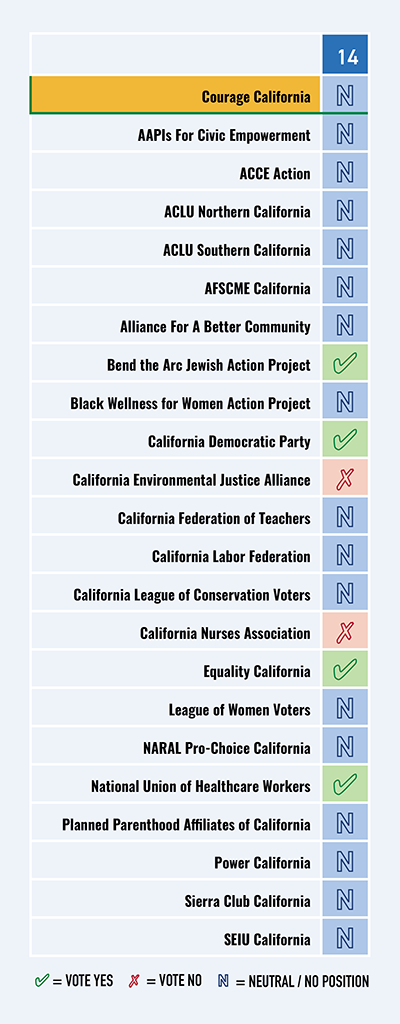


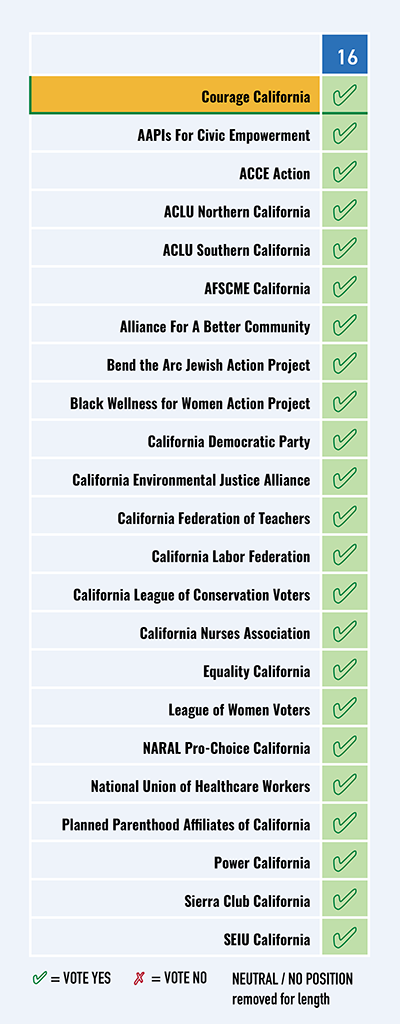
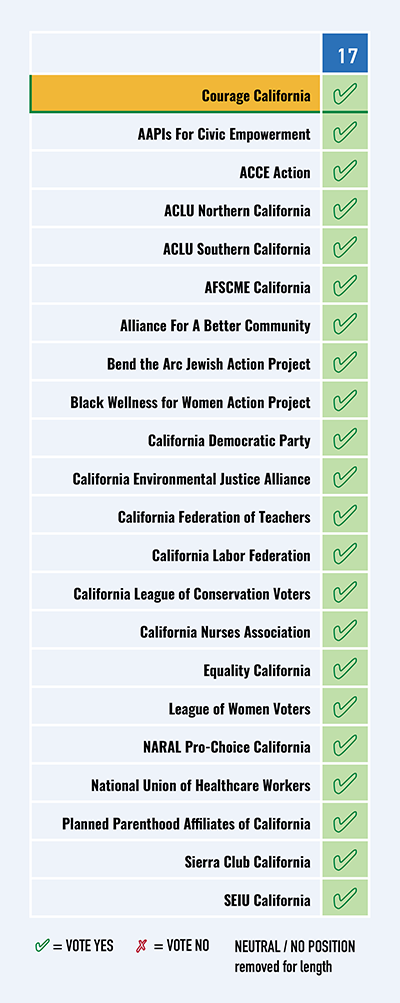
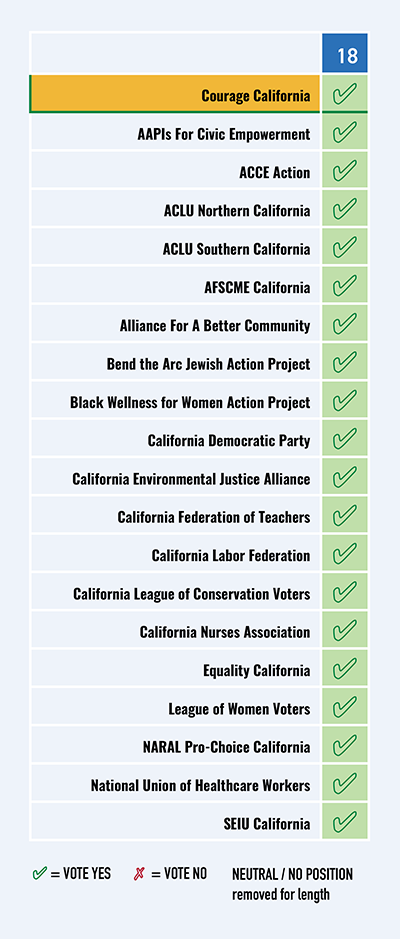
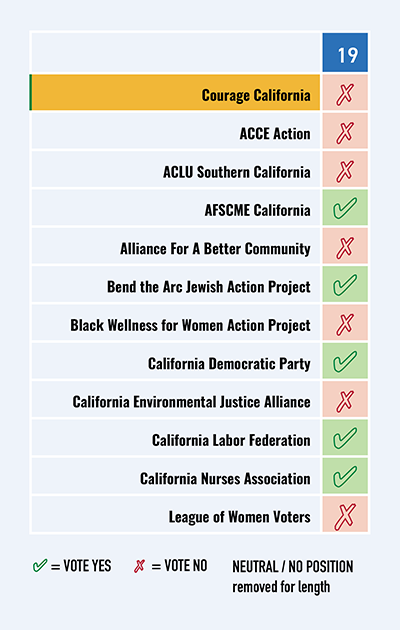

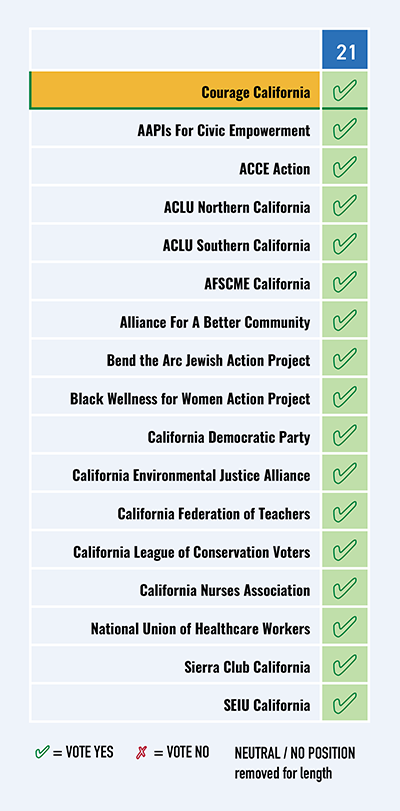
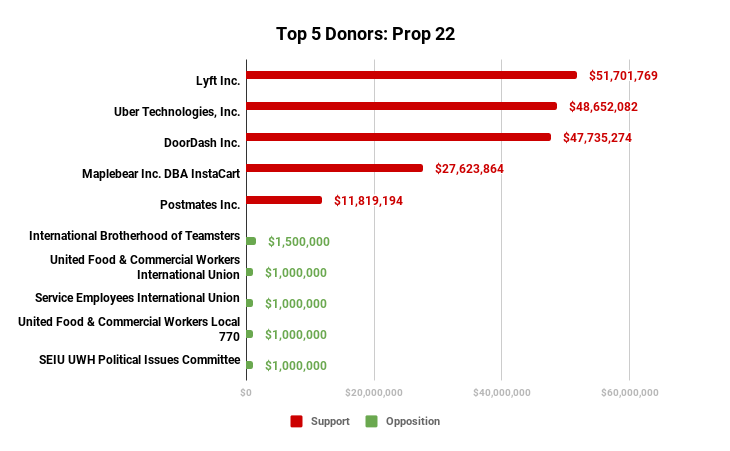
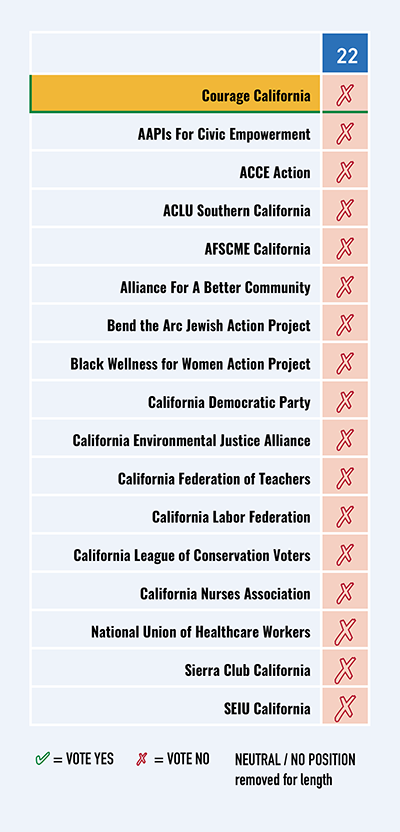
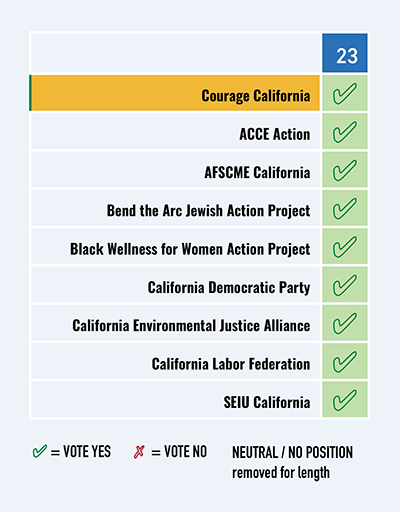
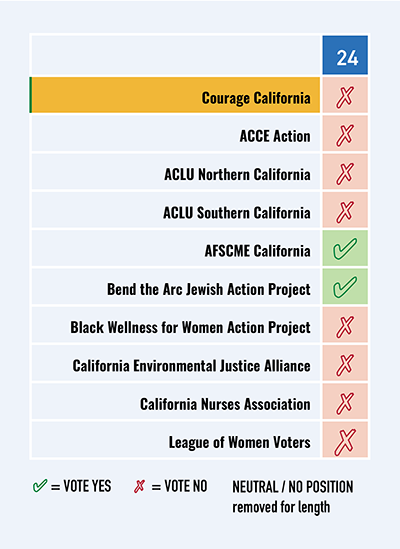
















To fill the five open seats on the Rent Stabilization Board Courage is recommending the following five members of the Right to Housing slate, which is made up of a diverse group of experienced community advocates and housing experts.
About the Position
In 2020, members of the Berkeley Rent Stabilization Board will be elected in an at-large race in which the top five candidates, rather than the usual four, will go on to serve. Board Commissioners serve four-year terms. There are no term limits for Board Commissioners.
About the District
The Berkeley Rent Stabilization Board is located in Berkeley, CA, and serves a population of roughly 121,363 Californians, according to the US Census estimate in 2019.
About the Race
There are 12 candidates in the race to fill the five available seats. The majority of the candidates have aligned onto two slates with opposing visions for Berkeley. Courage is recommending all five members of the Right to Housing slate. They face a tough race against the five members of the Homeowners for Berkeley Rent Board Slate, a property owner-oriented group which is heavily backed by real estate interests.